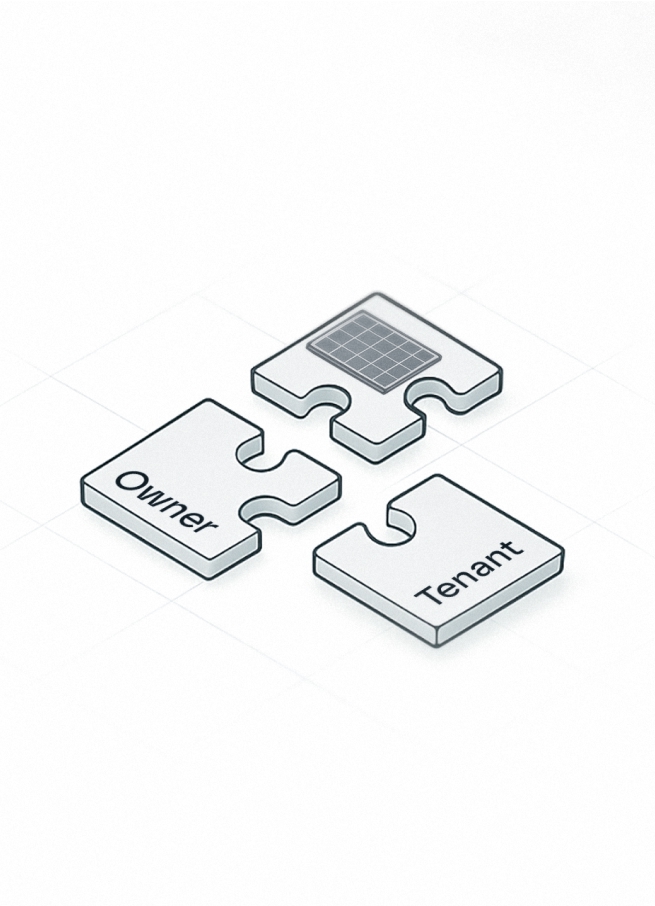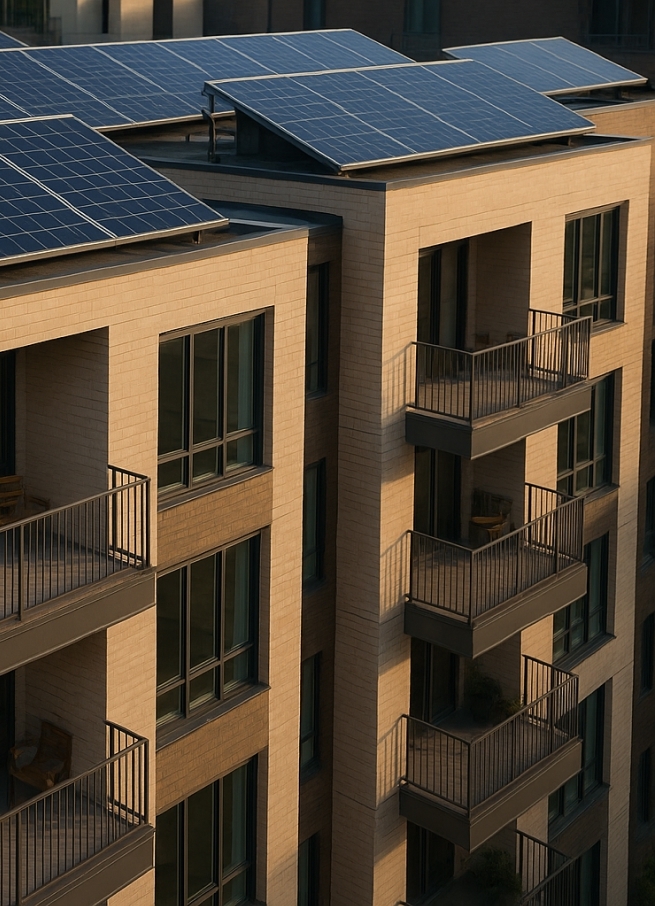Legalities of Selling Solar Energy to Residents

When considering solar for a multi-unit building, it’s natural to question things, such as liability or the policies governing the legality of selling solar energy to your residents. A solar system for your property is an investment, and you must make sure it is properly protected. This is a common question our team here at Ivy hears from multifamily property owners and residents. In this post, we’ll break down the policies that make it possible to distribute solar energy to residents and the various legal protections you can put in place.
IPP Solar Code Facilitates Selling Solar Energy
Distributing solar energy to residents is made possible by the IPP (Independent Power Producer) solar code. This is part of the Public Utilities Code, and it covers two important details:
- Defining who can be an Independent Power Producer.
- What an IPP can do with their solar energy.
First, an IPP, or, in this case, an Independent Solar Energy Producer, is any corporation or person with one or more solar energy systems generating electricity. Second, the electricity from their solar asset can be applied to the IPP’s own use or the use of its residents or tenats. This provides the legal right to product and sell solar energy on a multi-unit property without being considered a “utility”.
Virtual Net Metering Enables Monetization of Solar Assets
Virtual Net Metering (VNM), or Virtual Net Energy Metering (VNEM), is the utility tariff policy that enables a multi-unit building to share solar energy across multiple meters. Prior to VNEM, multifamily buildings could only apply a solar asset to the common area load. The VNEM policy makes it possible to distribute solar credits between the property owner and individual resident meters. This policy is vital to the legality of selling solar because it outlines locked-in energy rates after adding solar and the ability to distribute solar to residents.
Protections Provided by Rental Agreement Solar Addendum
Before distributing any solar benefits to residents, there is an essential step to legally protect you and your residents. If you implement Ivy’s Virtual Grid software for your solar billing, this step is handled for you with our Solar Lease Addendum/Amendment to your Rental Agreement. It has all the language required of IPPs, including communicating:
- How the resident’s monthly solar bill will be calculated.
- The passthrough discount amount for your community.
- Terms of payment, including late fees, administrative fees, removal from the program, and remedies for nonpayment.
- Disclosures required by the California Public Utility Code, including the good faith estimate of annual electricity generation.
- System maintenance responsibilities of the IPP.
- Termination and non-obligation to re-assign the solar lease if the resident no longer rents the premises.
As you can see from this list, the rental agreement solar addendum provides valuable legal protection and clearly outlines program expectations for both you and your residents.
FAQ: What happens if the solar isn’t producing enough for all the residents?
This is a question we receive frequently, as solar generation relies on clear skies and functioning technology. If there is an excess of cloudy days, your system may not generate enough electricity for all the residents. In this case, the property owner is protected from any liability because the good faith estimate of solar generation was communicated in the rental agreement solar addendum.
It is normal for solar panels to produce a surplus of energy in summer months and have lower production in months with shorter daylight hours and cloudier weather. However, that simply means you and your residents will have large savings in the summer and smaller savings in the winter. Additionally, using Ivy’s Virtual Grid solar billing software ensures that you equitably distribute the solar credits generated by the system, no matter how few.
Questions About the Legalities of Multifamily Solar? Call Us.
If you’re considering solar for your multifamily property or multi-unit building, you will have far greater success and ROI with the right systems and support in place. Not only do you have to make sure you meet all the requirements of the Public Utilities Code, but you’ll also have to manage the distribution of solar energy to your residents. Both of these can be stressful tasks to undertake on your own. With our Virtual Grid solution, you get an intelligent cost recovery and asset monetization model with performance monitoring, optimization, and the support of Ivy’s team. We have a deep understanding of the legalities of selling solar energy, so you don’t have to figure it all out on your own. Contact us to get your questions answered or get a solar revenue estimate for your property.





